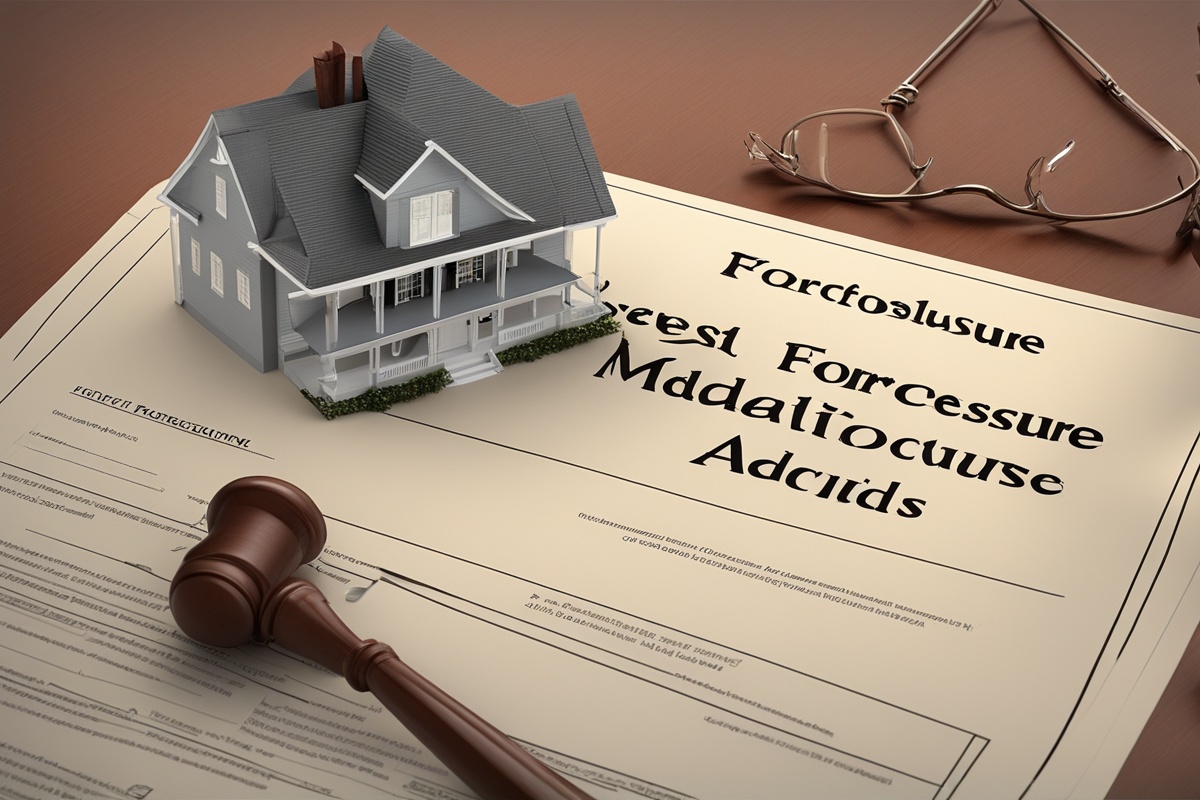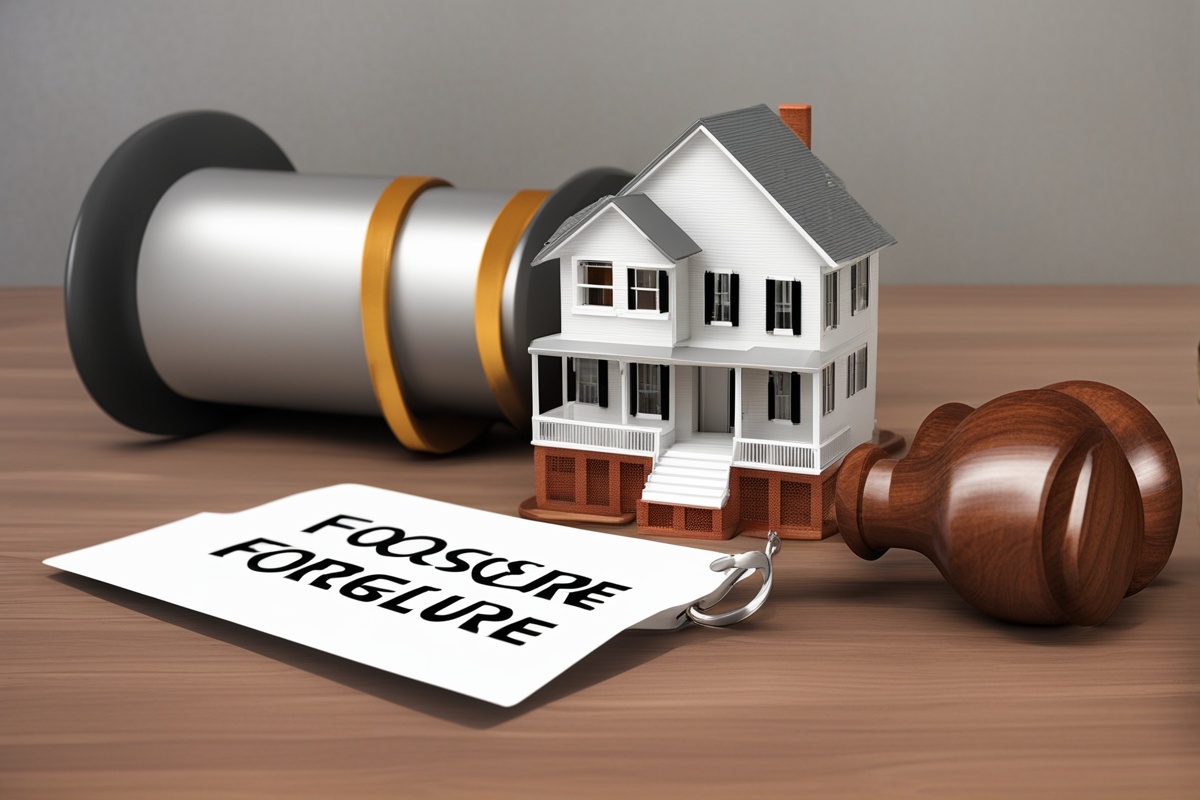Losing a home to foreclosure is one of the most challenging experiences a homeowner can face. However, there are pathways to mitigate the impact and find viable solutions. Navigating home loss solutions through foreclosure mediation offers a structured process to explore alternatives, potentially saving your home or easing the transition to a new chapter. This post delves into the intricacies of foreclosure mediation, providing actionable insights and resources for homeowners in distress.
What Is Foreclosure Mediation?
Foreclosure mediation is a process where a neutral third party, known as a mediator, facilitates discussions between a homeowner and their lender to find a mutually agreeable solution to avoid foreclosure. This process is often court-ordered or state-mandated in some regions, offering a last chance to negotiate terms like loan modifications, repayment plans, or even a graceful exit through a short sale or deed-in-lieu of foreclosure. For those navigating home loss solutions, mediation can be a critical step to regain control over an overwhelming financial situation.
The goal of mediation is not always to save the home—sometimes, it’s about finding the least damaging path forward. Understanding this process can empower homeowners to approach negotiations with clarity and confidence.
Why Consider Foreclosure Mediation for Home Loss Solutions?
Foreclosure mediation provides several benefits for homeowners facing the loss of their property. First, it creates a structured environment where both parties are encouraged to communicate openly. Unlike direct negotiations with a lender, which can feel intimidating, mediation involves a neutral facilitator who ensures fairness. This can be a game-changer when navigating home loss solutions, as it levels the playing field.
Additionally, mediation can save time and money compared to a drawn-out foreclosure process. It may also help preserve your credit score by avoiding a full foreclosure on your record. For many, this process offers emotional relief, providing a sense of agency during a deeply stressful time. If you’re unsure whether mediation is right for you, exploring resources like our guide to foreclosure alternatives can provide further clarity.
Steps to Prepare for Foreclosure Mediation
Preparation is key to making the most of foreclosure mediation. Here are some essential steps to take when navigating home loss solutions through this process:
- Gather Financial Documents: Collect pay stubs, bank statements, tax returns, and a detailed list of monthly expenses. These documents will help demonstrate your financial situation to the mediator and lender.
- Understand Your Loan Terms: Review your mortgage agreement to understand the terms, missed payments, and penalties. This knowledge will help you negotiate effectively.
- Seek Legal or Financial Advice: Consulting with a housing counselor or attorney can provide insights into your rights and options. Many states offer free counseling services for homeowners in foreclosure.
- Set Realistic Goals: Decide whether keeping your home is feasible or if a short sale or other exit strategy is more practical. Be honest about what you can afford.
Being prepared can make a significant difference in the outcome of mediation. For more tips on preparing for financial discussions, check out our post on financial planning during foreclosure.
Common Outcomes of Foreclosure Mediation
When navigating home loss solutions through mediation, the outcome depends on the homeowner’s circumstances and the lender’s willingness to negotiate. Here are some common resolutions:
- Loan Modification: Adjusting the terms of your mortgage, such as lowering the interest rate or extending the repayment period, to make payments more manageable.
- Repayment Plan: Agreeing to a schedule to catch up on missed payments over time while maintaining regular monthly payments.
- Short Sale: Selling the home for less than the outstanding mortgage balance, with the lender agreeing to forgive the remaining debt.
- Deed-in-Lieu of Foreclosure: Voluntarily transferring ownership of the property to the lender to avoid a formal foreclosure process.
While not every mediation results in saving the home, these outcomes often provide a less damaging alternative to a full foreclosure. Learn more about short sales in our detailed article on short sale vs. foreclosure.
Challenges in Foreclosure Mediation and How to Overcome Them
While foreclosure mediation offers hope, it’s not without challenges. One common issue is the lack of cooperation from lenders, who may be unwilling to offer favorable terms. Additionally, homeowners may struggle to provide the necessary documentation or feel overwhelmed by the process. Emotional stress can also hinder effective communication during mediation sessions.
To overcome these hurdles, consider working with a housing counselor or attorney who can advocate on your behalf. Additionally, staying organized and maintaining open communication with the mediator can help address misunderstandings. For emotional support, resources like our guide on coping with foreclosure stress can offer practical advice.
Where to Find Foreclosure Mediation Resources
Navigating home loss solutions requires access to the right resources. Many states have foreclosure mediation programs, often administered through the court system or local housing agencies. Websites like the U.S. Department of Housing and Urban Development (HUD) provide directories of approved housing counselors who can guide you through the process.
Nonprofit organizations, such as NeighborWorks America, also offer free or low-cost assistance to homeowners facing foreclosure. Additionally, local legal aid offices may provide representation or advice for mediation. For a comprehensive list of resources, refer to our foreclosure help resources page to find support in your area.
Disclaimer: The information provided in this post is for general informational purposes only and should not be considered legal or financial advice. Foreclosure laws and mediation processes vary by state and individual circumstances. We strongly recommend consulting with a qualified attorney, housing counselor, or financial advisor to discuss your specific situation before making any decisions regarding foreclosure or home loss solutions. The authors and publishers of this content are not responsible for any actions taken based on the information provided herein.
References
- U.S. Department of Housing and Urban Development (HUD) – Avoiding Foreclosure
- Consumer Financial Protection Bureau (CFPB) – What is Foreclosure Mediation?
- NeighborWorks America – Foreclosure Prevention Resources
- Nolo – Foreclosure Mediation Programs: How They Work
- American Bar Association – Foreclosure Mediation Resources
This content is for informational purposes only and not a substitute for professional advice.





